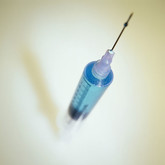Biosimilars/General
EGA commends EMA workshop on biosimilars guidelines
The European Generic medicines Association (EGA) has congratulated the European Medicines Agency (EMA) on its organization of the EMA workshop on biosimilars and urges rapid adoption of its revisions to the agency’s overarching guidelines on biosimilars.
FDA extends biosimilars deadlines due to US shutdown
As a result of the US government shutdown, the US Food and Drug Administration (FDA) has extended the deadlines and goal dates for its biosimilars activities.
ASBM publishes paper on biosimilar naming
The US-based Alliance for Safe Biologic Medicines (ASBM) announced on 28 November 2012 that its recommendations with respect to identification and substitution of biosimilars have been published in the Food and Drug Law Institute (FDLI) policy forum.
EGA’s vision for biosimilars and generics
On 8 October 2013, the European Generic medicines Association (EGA) launched its industrial policy vision for the future of the biosimilars and generics industries in Europe at the EGA Industrial Policy Conference.
Biosimilars applications under review by EMA – 2013 Q2
Last update: 15 October 2013
The European Medicines Agency (EMA) is the body responsible for approval of biosimilars within the EU. A legal framework for approving biosimilars was established in 2003. Approval of biosimilars is based on an abbreviated registration process, which allows biosimilars manufacturers to provide a reduced package of information compared to originator drugs, provided they can prove ‘similarity’ to the originator or reference drug.
Biosimilars applications under review by EMA – 2013 Q3
Last update: 4 October 2013
The European Medicines Agency (EMA) is the body responsible for approval of biosimilars within the EU. A legal framework for approving biosimilars was established in 2003. Approval of biosimilars is based on an abbreviated registration process, which allows biosimilars manufacturers to provide a reduced package of information compared to originator drugs, provided they can prove ‘similarity’ to the originator or reference drug.
Fight continues over biosimilar naming standards
Biosimilar products marketed in the US should share the same common non-proprietary name as the reference brand-name biological medicine, according to the Generic Pharmaceutical Association (GPhA).
Biosimilars applications under review by EMA – 2012 Q4
Last update: 23 August 2013
European Medicines Agency (EMA) is the body responsible for approval of biosimilars within the EU. A legal framework for approving biosimilars was established in 2003. Approval of biosimilars is based on an abbreviated registration process, which allows biosimilars manufacturers to provide a reduced package of information compared to originator drugs, provided they can prove ‘similarity’ to the originator or ‘reference drug’.
Call for clarity in FDA’s draft guidance on biosimilar meetings
Drug companies have made comments on FDA’s draft guidance for industry on formal meetings between the agency and biosimilars manufacturers. They believe that the guidance needs some revision to protect data and provide clarity.
Biologicals sales have almost doubled since 2006
Sales of biologicals have almost doubled from US$63.8 billion in 2006 to US$124.6 billion in 2012.












